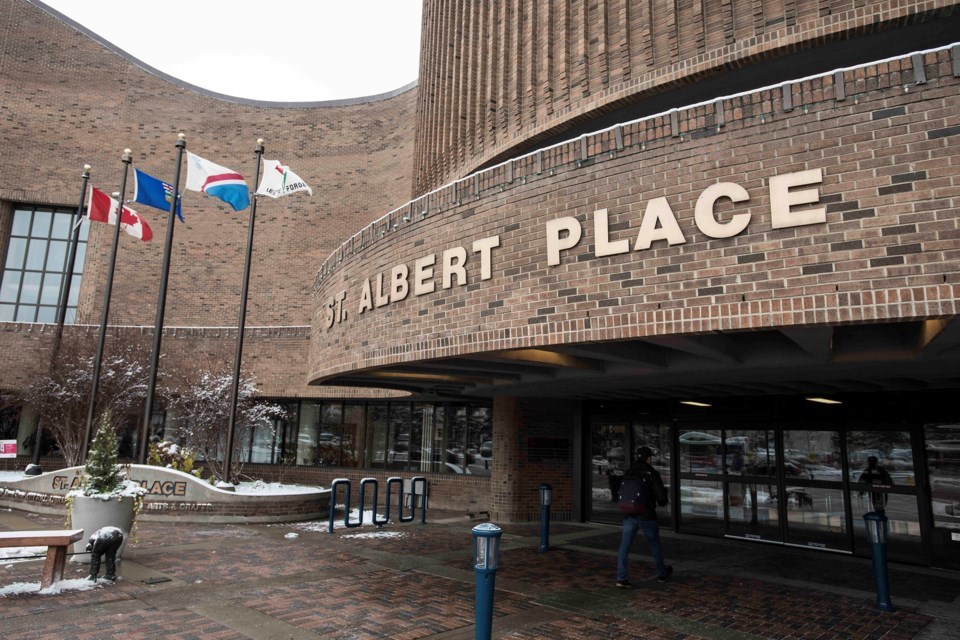St. Albert city council repealed the oldest existing bylaw on the city's books this week.
The Penalty Bylaw, approved back in 1976 during Richard Plain's first stint as Mayor, hasn't been enforced for many years, a report to council written by the city's director of legal and legislative services, Marta Caufield, says.
The bylaw also refers to St. Albert as a town, as the community didn't reach city status until the following year.
“The Penalty Bylaw was passed... for the purpose of imposing penalties that were generally applicable for contraventions of all bylaws in lieu of prosecution,” Caufield wrote. “Since this time, practice and legislation such as the provincial offences procedure act have evolved.”
Rather than having a bylaw dedicated solely to outline what penalties are applicable for all bylaw violations, Caufield's report explains that the common practice now for municipalities is to include what penalties are applicable for bylaw infractions in each separate bylaw.
The two-page Penalty Bylaw states that a breach of any bylaw that did not have a pre-specified penalty could result in a fine of up to $500, and in the case of non-payment, “imprisonment for a period not exceeding six months.”
Potential jail time as a result of unpaid bylaw fines came to an end in Alberta in 2017 when the provincial government amended existing legislation to no longer issue arrest warrants for those with unpaid bylaw tickets.
In 2019 CBC Edmonton reported the legislation change reduced the number of outstanding warrants in Alberta by about 43,000.
Given St. Albert's Penalty Bylaw hasn't been enforced for some time, Caufield's report states that repealing the bylaw avoids public confusion and ensures the city's bylaws are not contradictory.
The bylaw was repealed unanimously with no council debate on Nov. 7.
With the Penalty Bylaw now repealed, the oldest still active bylaws date back to 1995 — the Subdivision Development Appeal Board Bylaw, the Subdivision Development Authority Bylaw, and the Development Authority Bylaw — all of which have been amended or updated within the past five years.
The oldest city bylaw that hasn't been updated since receiving council approval is the Dutch Elm Disease Bylaw of 1998.
The Dutch Elm Disease Bylaw's goal is to control and prevent the spread of the disease, which is a deadly fungus spread from Elm tree to Elm tree by specific species of beetles.
The bylaw dictates that those who own Elm trees must keep them pruned however pruning is prohibited between April and September, and written authorization must be obtained before anybody transports an Elm tree into the city.
Violating the Dutch Elm Disease Bylaw could result in a fine of up to $5,000, and imprisonment for two months or less.
City spokesperson Kathy DeJong said in an email that administration currently has no plans update the Dutch Elm Disease Bylaw as the wording still aligns with the provincial government's Agricultural Pests Act.
DeJong also said that the city's practice is to repeal bylaws when they're no longer needed, and pointed to a few bylaws council repealed in recent years, including two bylaws that were no longer purposeful after council decided to disband the Community Growth and Infrastructure Standing Committee and the Community Living Standing Committee last year.




